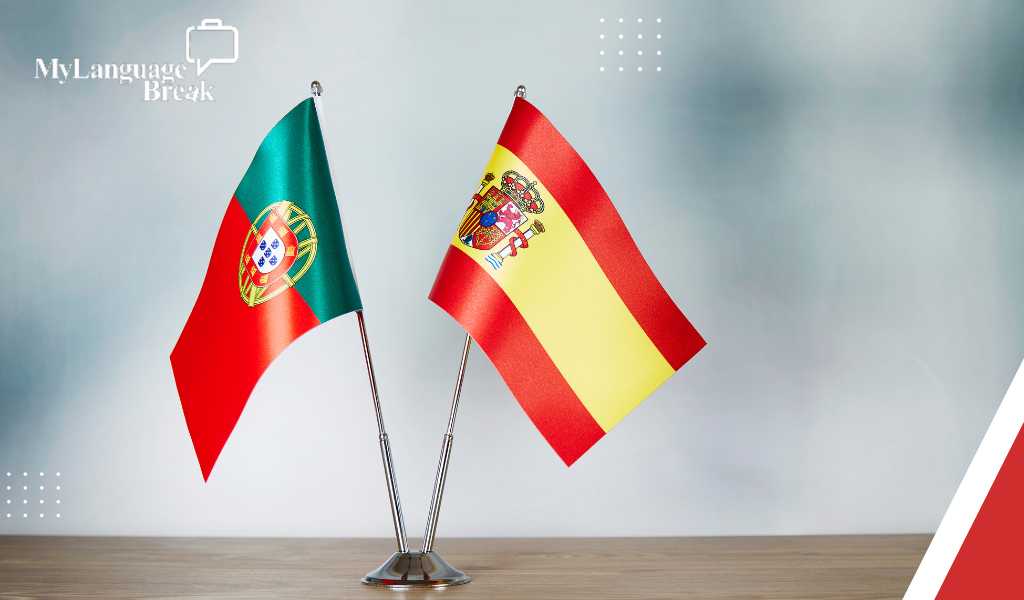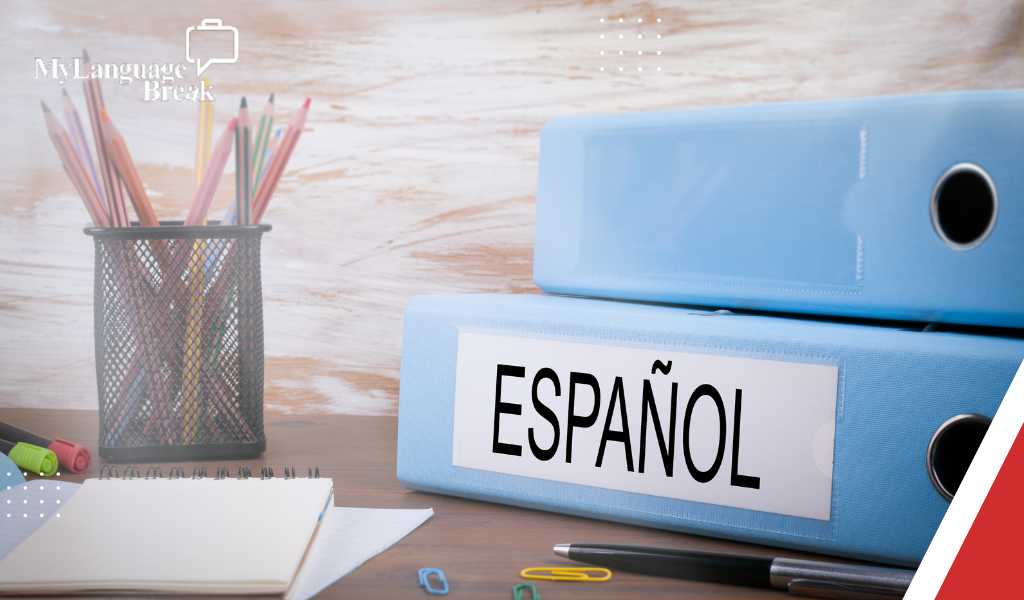Do you want to learn a new language? If so, you may be wondering which one is easier: Portuguese or Spanish. Both languages are spoken in many countries around the world, and they both have their unique quirks and grammar rules. We will compare and contrast these two languages to help you make a decision about which one to learn!
Spanish vs Portuguese: Which is Easier to Learn?
Spanish and Portuguese are both Romance languages, which means that they share many similarities. However, there are also some key differences between the two languages. Spanish is generally considered to be easier to learn than Portuguese. This is because it has fewer verb tenses and conjugations than Portuguese does. Additionally, the pronunciation of Spanish is simpler than the pronunciation of Portuguese.
Differences between Spanish and Portuguese
The Romance languages are all descended from Vulgar Latin, the language spoken by the invading Roman armies. Although Spanish and Portuguese share a common heritage, they each have their unique personality and grammatical rules. Spanish is generally seen as a more romantic and poetic language, while Portuguese is known for its earthier, more straightforward style.

- They are both Romance languages, meaning that they evolved from Vulgar Latin. However, Portuguese has been more heavily influenced by French, while Spanish has been more influenced by Ancient Arabic. This is largely because Portugal was under French rule for a longer period, while Spain was under Moorish rule for centuries. As a result, Portuguese tends to be more nasalized and uses more French loanwords, while Spanish is more lyrical and uses more Arabic loanwords.
- Different use of vowels
- The Portuguese accent is often influenced by the French style of pronunciation, while Spanish words often take on an Italian flair. This creates a unique and interesting mix of sounds when speakers from either country are communicating with each other. It can sometimes be difficult to understand what is being said, but the differing pronunciations add a distinctive flair to the language that is charming and intriguing.
- They are expressing the word ‘you.’
- False cognates are words that look the same in two languages but have completely different meanings. This can often lead to confusion, as people may not realize that the word they are using has a different meaning in another language.
Similarities between Spanish and Portuguese
Source: @Langfocus – How Similar are Spanish and Portuguese?!
The two languages are very similar, which makes learning either one of them much easier. The word order is largely the same, and there are many shared vocabulary words. Additionally, both languages use gender for common nouns. This means that you don’t have to learn any new letters to speak Spanish or Portuguese – you can just start speaking right away!
Dialects and Immersion Learning
Dialects are regional variations of a language and, as such, can pose a challenge for those trying to learn a new language. Immersive learning techniques, such as exposure to words and phrases unique to certain regions, can help make identifying and learning dialects easier.
Castilian Spanish is the dialect that is most commonly spoken on the Iberian Peninsula. It has some distinct differences from Latin Spanish, both in how it sounds and in the meaning of certain phrases and expressions. Andalusian is commonly spoken in Southern Spain; one of the main differences you’ll notice is that speakers often drop the ‘s’ from the end of words.
Portugal has four main dialects: those found in the north and south of the country, as well as Azorean and Madeiranese.

The Easiest Romance Languages to Learn
It can be difficult to say which language is easier to learn because it is subjective. Some people may find that Spanish is easier to learn because the grammar is simpler, while others may find that Portuguese is easier to learn because it has a more similar pronunciation to English. However, many people find that once they learn one of the Romance languages, picking up another is much easier than the first time around.
Spanish vs Portuguese: Which is More Useful?
Learning a foreign language can be extremely beneficial to your career. According to The Education Magazine, the top ten languages to learn to further your career are German, Spanish, Portuguese, Japanese, French, Arabic, Mandarin Chinese, Italian Russian, and Korean.
Spanish and Portuguese are both useful Romance languages that are spoken by millions of people worldwide. They share a lot of similarities, so if you learn one, the other will be much easier to learn. Both languages are spoken in many countries in Europe, South America, and North America. They are also important for business purposes, as they are among the most commonly used languages in the world for commerce.
Prospective employers often view candidates with a second language as more committed, hardworking, and intelligent. Learning a new language can also offer many benefits while traveling, such as the ability to read menus and navigate public transportation systems. Being able to speak the local language also allows travelers to immerse themselves more fully in the culture and find hidden gems that tourists might miss.

The Advantages of Learning a New Language
When it comes to learning a new language, there are many benefits to be gained. Some of these benefits include looking good on a resume, being able to speak the local tongue while traveling, and having a deeper understanding and appreciation of other cultures. Additionally, learning a new language can also boost brain power by increasing memory, concentration, decision-making skills, and creative thinking. Bilingualism can also be effective protection against age-related Alzheimer’s disease. All in all, there are many reasons to start learning a new language today!
One of the most notable advantages is that it can help improve your use of your native language. Children that have grown up in bilingual households and speak more than one language tend to do better in all areas of the curriculum. They often have a better understanding of grammar and syntax, and can more easily pick up new vocabulary.
Most people find that, once they learn a second language, picking up a further one after this is relatively easy. This is because the brain has already been trained in how to learn and process new information. So, if you’re looking to learn a new language, don’t be afraid – go for it! You may be surprised at just how quickly you can start making progress.
How to Choose the Right Learning Style for You
When it comes to deciding whether an in-person or online course is best for you, there are a few things to consider. The first is what type of learner you are. Are you someone who needs the structure of a physical class, or can you learn better online where you have more control over your own learning? If there are travel considerations, think about how feasible it is to attend classes regularly. If some sessions run on the weekend, for example, will that be an issue for you?
Another thing to think about is how prepared you are for your study. If the time is nearing and you have yet to start planning, now is the time to get organized. Consider batch-cooking meals so you have nutritious food on hand when you’re busy with your coursework or thinking about how your family rota may need to flex to accommodate extra demands on your time and energy. With a bit of organization, you can make sure that studying for your course doesn’t take over your life entirely!

- Extended vs. short bursts of learning
There are many different ways that people learn, and some people prefer to study for extended periods, while others may retain information better by learning in short bursts throughout the day. Studies have found that information is better retained when learning is done in several short bursts throughout the day. This may be because it helps maintain motivation and prevents tiredness from sabotaging your learning. Working little and often throughout the whole day can help you achieve this.
- Immersive Learning Techniques for Language Acquisition
Immersive learning techniques are believed to be the best way to learn a new language. This method involves surrounding yourself with the target language as much as possible, daily. Many people find it useful to relabel items in their kitchen cupboard or office in the new language so that they see this vocab every day.
Having a weekly phone call or meeting for coffee with a study buddy can help you to improve your language skills. This is because you will be able to practice speaking and listening, as well as writing and reading. Additionally, joining an online forum or local meet-up with other learners can also help you to improve your conversation skills.
- Learn Spanish or Portuguese by Watching TV and Movies with Subtitles
It is possible to learn Spanish or Portuguese by watching TV and movies with subtitles. This immersive technique is one of the best ways to build vocabulary and conversational skills. The less-formal, everyday language heard in TV programs and films can be helpful in terms of practical learning.
Conclusion
So, there you have it! A detailed comparison of Portuguese and Spanish in regards to how easy they are (or aren’t) to learn. While both languages share certain similarities, they also have enough unique differences to make either one a challenge for English speakers. If you’re still undecided, the best way to choose is by trying out each language yourself and seeing which suits your needs better.

